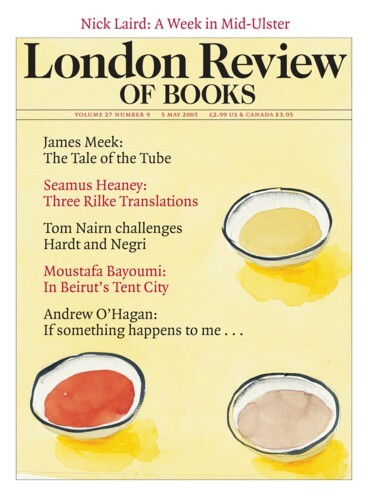The Men from God Knows Where: The Hundred Years War
Maurice Keen, 27 April 2000
Like Edward Gibbon, that earlier master of narrative history, Jonathan Sumption went to Magdalen College, Oxford and stayed the course there longer and more successfully than his great predecessor. There are other points of comparison. Both left academia early for more public walks in life; Gibbon successively as squire, officer in the militia and Member of Parliament, Sumption for the Bar, where he became a leading QC. Both cast around with other historical interests before settling on their respective projects for a magnum opus. Sumption, having done so, has succeeded like Gibbon in fitting into a life with other preoccupations a prodigious effort of historical research. Though Gibbon’s Decline and Fall covers more than a millennium and Sumption’s history of the Hundred Years War only a little more than a century, it is unclear which (when his work is completed) will be the shorter. Sumption’s first volume, published in 1990, carries the story to 1347, the second to 1369: there are still more than eighty years to go, before we reach the final chapter, with the collapse of the English cause in France in 1450-53. As the first two volumes amply demonstrate, it is a story worth telling in all the detail he has devoted to it.





